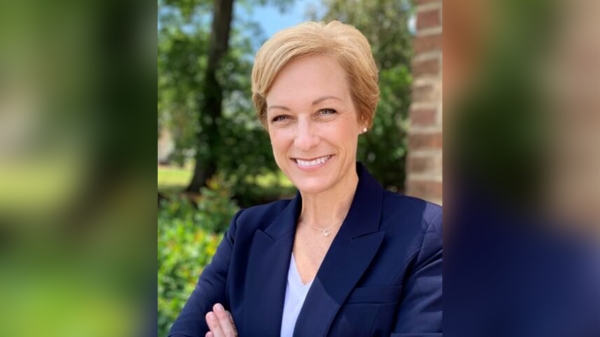By Bill Britt and Susan Britt
Alabama Political Reporter
MONTGOMERY—Late Friday evening, Gov. Robert Bentley’s administration published a lengthy press release announcing the “re-launch” of Open Alabama, and defending the $47 million STAARS software program.
The carefully parsed statement from the Governor’s office was particularly nuanced and did not directly address the concerns that State agencies have raised and continue to voice in private.
The release began, “Governor Robert Bentley on Friday announced Alabama’s vital transparency tool for taxpayers, Open Alabama, the State’s online checkbook, is live and operational as part of an ongoing information technology upgrade which has been years in the making.”
The problem was not that Open Alabama was not operating. All data entered before sometime in October was readily available. However, the site had not been updated with current payments, until last week.
In a Twitter posting, Gov. Bentley stated, “Today I announced the the Open Alabama re-launch will save taxpayers millions with an overdue upgrade.”
The term “launch” or a “re-launch” of a site indicates a change, most specifically in look and feel or design. An update is just that: an update of information within an already existing framework. When a website is “down” that signals that it is not available for viewing.
In fact, OpenAlabama.org was not “down” during October through December 2015, it was simply not updated.
Screenshots taken on December 8, 2015 show that the site had been partially updated for October, but ceased. The October postings show a partial balance of $25,767,139.30, but was updated in late October to show a balance of $2,603,845,495.79. At that time, only AL Industrial Development Training Institute, Human Resources and State Port Authority had partial updates. All remaining agencies had not yet been updated.
If STAARS automatically updates OpenAlabama.org, then why were there only partial postings for October? If STAARS was implemented on October 1, the failure to update should have occurred on that date. It is as though postings to OpenAlabama.org were halted abruptly in October, and remained unattended until late December.
The months of November and December 2015 were available on December 8, but there were no postings available to be viewed.
Changing subjects, Governor Robert Bentley said, “Now that the upgrade of our archaic financial software is being implemented, the result is a significant improvement in the way State government handles business. State agencies have received regular monthly updates on the implementation process since April 2014, and have worked well together on the upgrade.”
However, several, high-level agency personnel have disputed the “worked well together on the upgrade” portion of the Governor’s statement, but are fearful that Acting Finance Director Bill Newton will seek retribution against any who reveal the extent of the failed implementation.
Bentley’s statement is mostly accurate, however, the STAARS system is not an upgrade in the sense that a mobile phone or computer receives an upgrade to the existing operating system like Windows 8 to 10, or iPhone iOS 9 to iOS 9.2. This is a completely new system purchased with a no-bid contract from a vendor who has had a contract with the State since 1982. A no-bid contract Newton convinced Bentley sign, purposefully disregarded previous warnings from former Gov. Bob Riley’s legal advisors that the contract must be awardered after an RFP, a position believed to also held by Richard Cater, Chief Legal Counsel for the Department of Finance.
This, in itself, could be problematic for Newton, as a 2002 Attorney General’s Opinion issued by then AG Bill Pryor found that software updates have to be bid unless customized. Those who have worked with the implementation of the STAARS system claim it was not custom software. One individual close to the project said CGI the company providing the system said the state was trying to fit its square peg in their round hole.
Despite the spin coming from the Capitol, alreporter.com continues to hear horror stories concerning the program’s continued failings.
The Governor’s press release also praises SB117, sponsored by State Rep. Ken Johnson (R-Moulton) and State Sen. Phil Williams (R-Rainbow City), which further paved the way for the STAARS system.
At the signing ceremony Williams said, “As State operations become more and more dependent upon technology, it’s imperative that we have someone to hold accountable for making sure we’re operating in the most efficient and responsible manner,” said Senator Phil Williams (R-Rainbow City), who sponsored the legislation. “The signing of this bill marks a positive step toward significant cost savings for state I.T. functions, and I’m proud to have been a part of this effort.”
Williams, through his father’s tech company, VETSINC, was a sub-contractor for Paragon Source, a failed software system championed by Newton during the Riley Administration, which cost taxpayers approximately $13 million.
Interestingly, Williams’ original statement of economic interest filed with the Ethics Commission lists no outside consulting contracts, however his latest filing show 40 such contracts since becoming a State Senator.
Bentley continued in the Friday night press dump by saying, “Each State agency contributes to the payment of the upgrade, creating no debt for the State. The upgrade is expected to save taxpayers millions of dollars in the future.”
Each State agency pays a pro rata share of the $47 million to CGI, meaning that an agency paying $90,000 a year has less in its operational budget, which is tantamount to a cut as they are not provided with additional funding for the STAARS system. Cash-strapped agencies which are already tasked with doing more with less, now have even fewer dollars to work with.
The press release also quoted Newton saying, “When the State completes the implementation of this software upgrade, all users of the system will recognize the significant benefit.”
Technology Czar, Brunson White said, “The legacy version of the software has been an impediment for standardizing and modernizing our business processes for decades.”
Here again, the administration doubles-down on calling STAARS part of a legacy system.
The carefully parsed and nuanced press release from the Bentley administration would seem to send a clear message, that massive spin or perhaps a cover-up is underway, at the highest levels of State government.
Several high-placed individuals within the administration are baffled at Bentley’s resistance to hold Newton responsible for the implementation debacle.
Bill Newton, the man, who during a critical phase of the STAARS implementation, took a two week vacation in Europe.























































